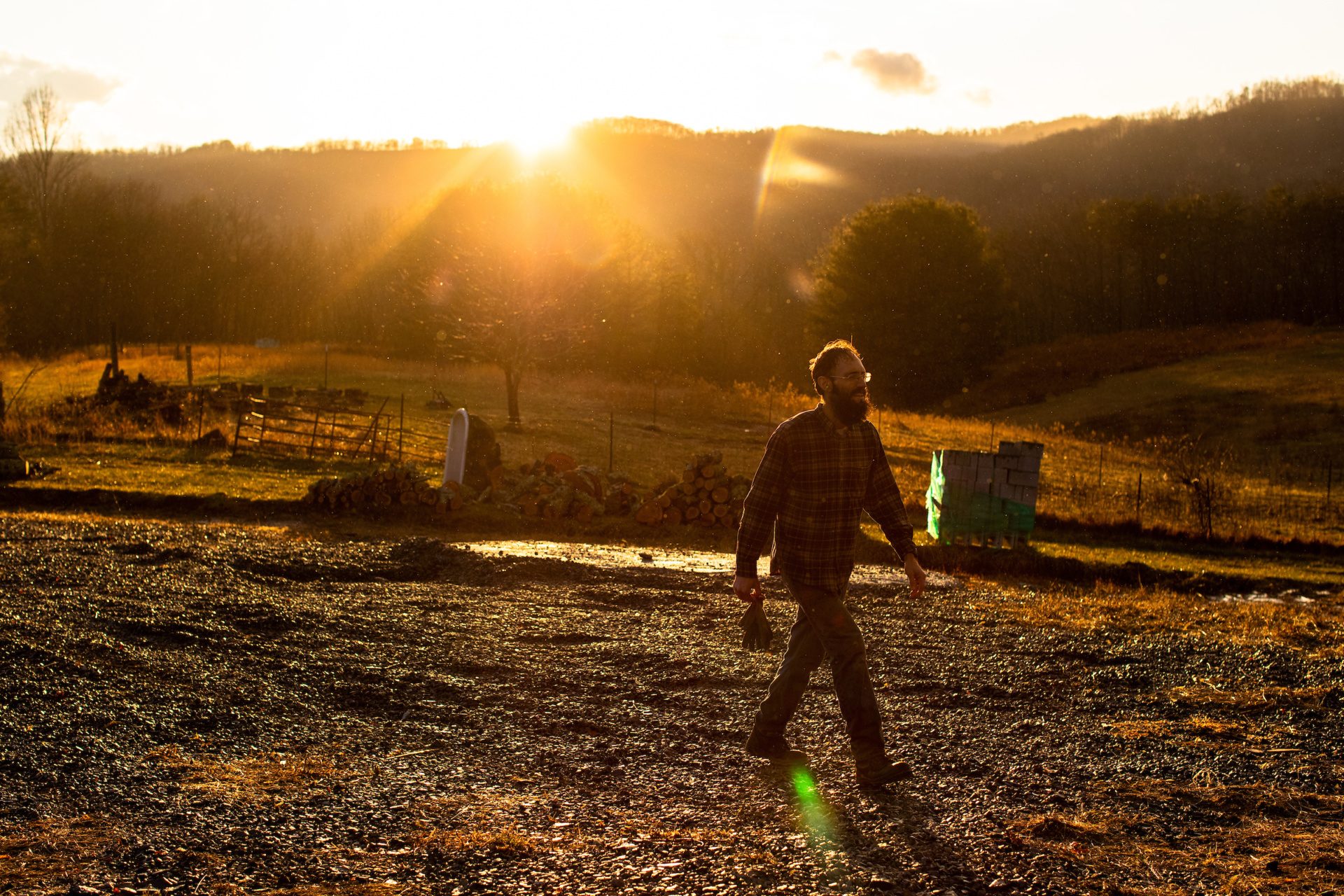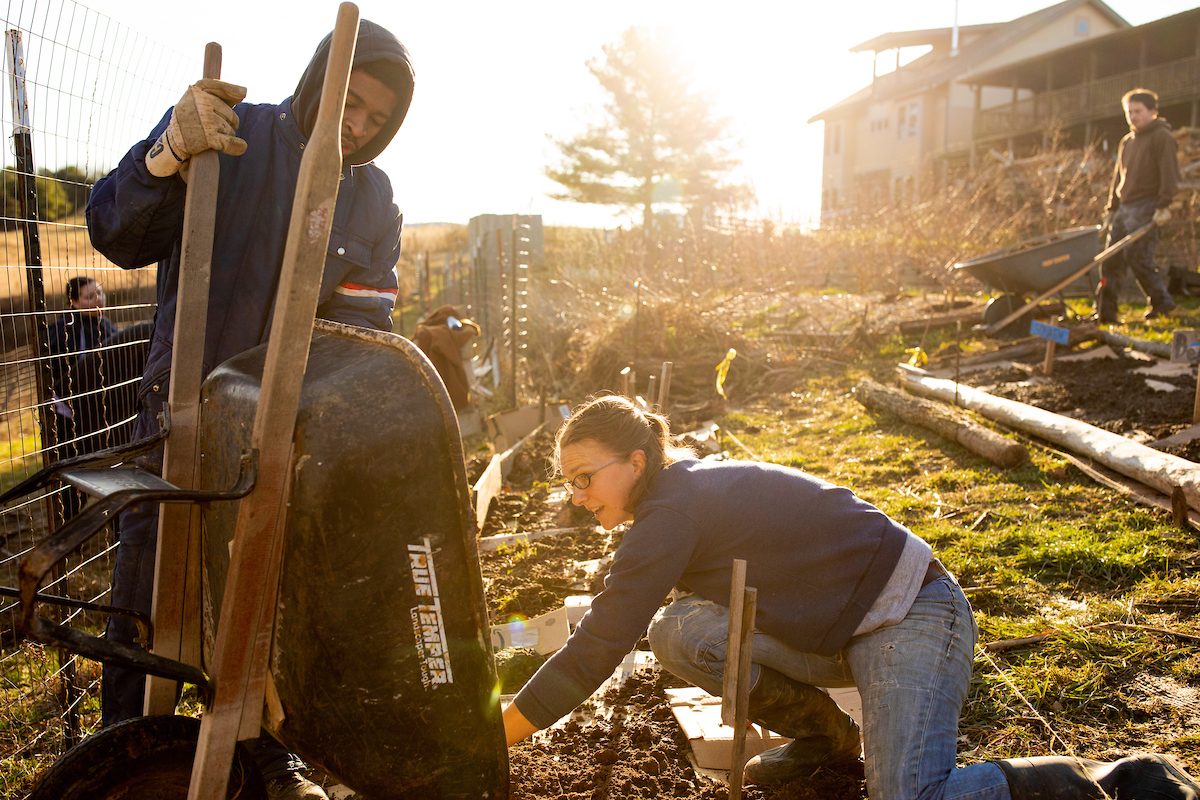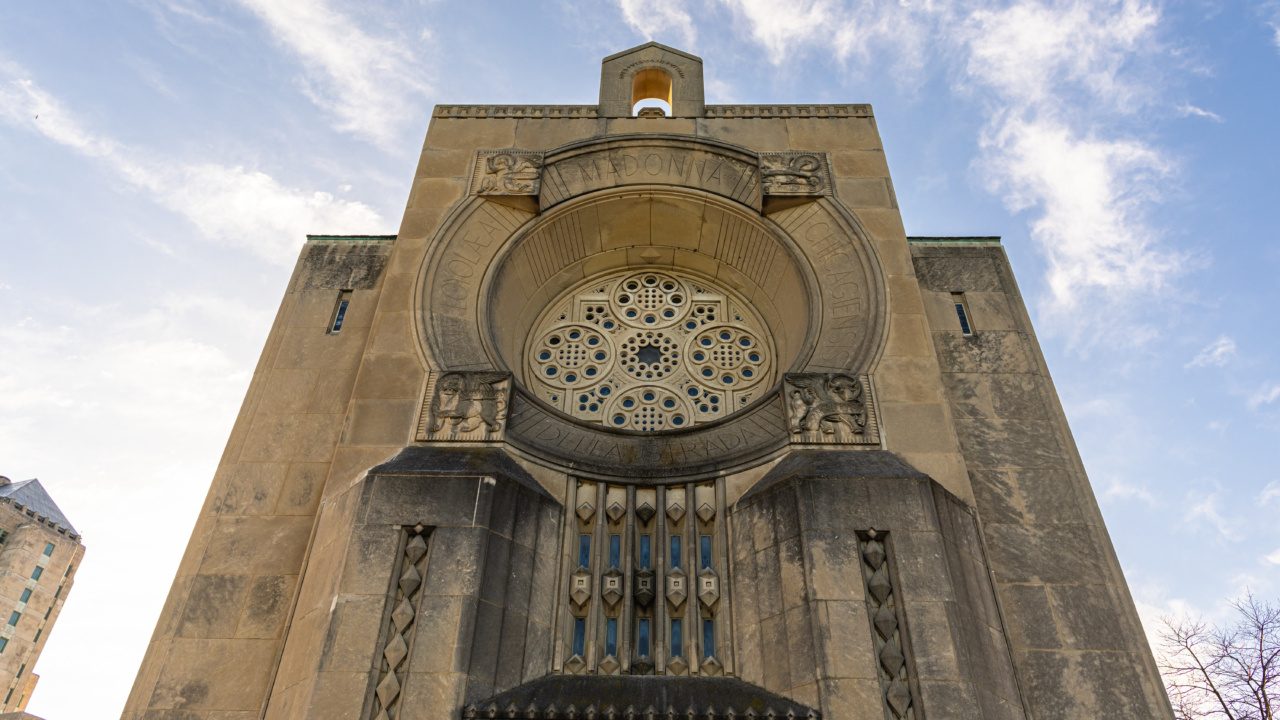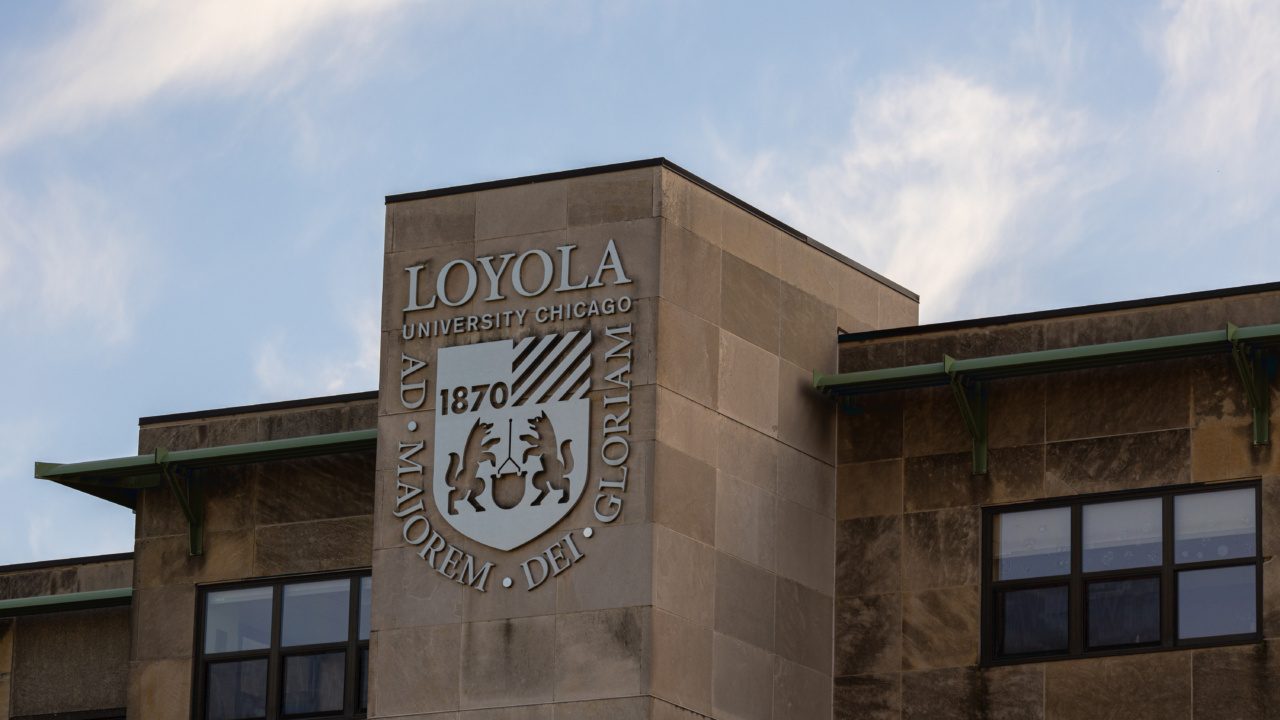Loyola alums’ farm provides immersion opportunity for students

Eric and Colleen Fitts, a pair of enterprising Loyola University Chicago alums, seek to walk softly on this earth. With their kids in tow, the married pair does so in the central Appalachian town of Clayton, West Virginia on a 50-acre farm and retreat center they opened more than a decade ago. They named it Bethlehem Farms.
Colleen first visited that lush part of the country in 2002, when she met Eric on a Loyola service immersion trip. For three years, he had been working as a staff member at nearby Nazareth Farm; they clicked, and Colleen joined him in West Virginia immediately after her graduation.
Growing up in suburban Chicago, Colleen’s dad taught her “the idea that you can learn how to do things and then do them.” Eric was an Eagle Scout who was trained to prepare for any scenario. On their farm, there’s livestock and organic gardens, a berry patch and an orchard. The Fitts merge their can-do attitudes with a resonant spiritual philosophy. As Eric puts it, “we were looking for one of those places in the world where our skills meet the needs in a special way.”

Bethlehem welcomes 400 volunteers a year for week-long Catholic retreats. Retreatants sleep in a log lodge next to the caretaker residence and for the duration of their stay adopt a “radical, gospel-based lifestyle.” Each day begins with a group prayer and a shared meal of food sourced locally and organically. During the week, visitors set aside cell phones and email. They limit their showers and toilet flushing. They even dispense with their watches, so as to better live on “God’s time.” The ambition is to mark a clean break from everyday life, to create space to see the world through a new lens.
Low-income home repair is Bethlehem’s primary ministry. Neighbors call with an inquiry or apply for assistance. If it’s a task Fitts and their volunteers can handle, they’ll accept the commission and waive all labor fees. The homeowner covers the materials, often with no-interest loans. “We’ll do roofs that aren’t too high,” Colleen says. “We’ll do wheelchair ramps, floors, walls, ceilings, insulation, new windows.” They’ve also launched a sustainable upgrades program, in which Bethlehem uses grant money to subsidize the purchase of alternative building supplies. If the client wants to put down linoleum flooring, for example, the farm might push for ceramic tiles or bamboo floors instead, better for the homeowner’s lungs and the planet. On a few occasions, they’ve proposed electrical solar panels, a sensible if challenging recommendation in Coal Country.
Aside from the natural beauty, West Virginia offers Eric and Colleen opportunities for communion and growth. “Neighborliness and kindness are part of the ethic of West Virginia,” she says. “I learned how to drive a tractor from a neighbor. I learned how to keep bees from a neighbor. Someone just came over and helped us rethread a pipe. The list goes on and on.” Sharing those experiences with Rambler retreatants is particularly gratifying: “We love having Loyola come through. It’s like having your friends over, even though we’ve never met.”

